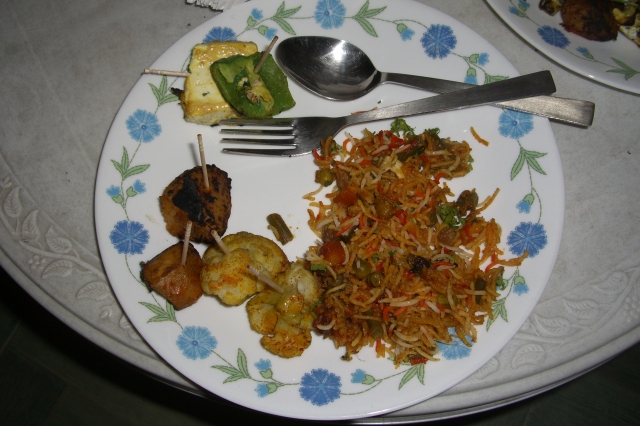
Milan pronounced [Mil-un] मिलन <- Hindi. Origin: Sanskrit : A coming together.
 The Nilgiris or Blue Mountains are a part of the Western Ghats located in the southern Indian state of Tamil Nadu. Coonoor is a town known for it’s production of tea.
The Nilgiris or Blue Mountains are a part of the Western Ghats located in the southern Indian state of Tamil Nadu. Coonoor is a town known for it’s production of tea.
Chap 1a: Mili
—o—
It was an early Spring morning in the valley. A thick blanket of soft dense fluffy white covered the verdant hills of the Nilgiris (Blue Mountains,) forming an illusion which slowly dissipated as the Sun came up; just like a pleasant dream that dissolves and fades despite desperate attempts to latch on.
A cool breeze pregnant with moisture blew in through the wide open windows of the large villa with the whitewashed stucco walls and the red tile rooftops.
Mili stretched in her bed–long, lazy and limber. It was nice to be home at last and out of the hot and humid climes of Chennai. And this time she was back for good. At least till she could figure out what she was going to do next with her life. For now, she was going to relax, take it easy and get reacquainted with her past.
She got out of bed, ambled over to the window and gazed out at what remained of the beautiful vista that had greeted her for as long as she could remember.
The Serenity tea estate was among the oldest and largest in Coonoor. It had been a part of Mili’s family, the Bharawaj’s, for several decades. From what she had been told, in order to escape the furor and violence that had erupted in the northern territories during the country’s partition in 1947, her grandfather had relocated to the south where the situation was much calmer. After procuring the tea plantation, he had invested his entire wealth in it and then nurtured it with great love. It had prospered since, producing some of the finest tea in the land and provided livelihood to several families who worked on it.
But times were changing. The nouveau riche, that the country was breeding in plenty, wanted to buy up everything in sight and convert it into residential and commercial real estate. Many of their neighbors had succumbed to temptation, sold their properties for premium prices and moved away, leading to the profusion of brand new construction that blocked Mili’s view.
Mili’s father, Jai Bharadwaj, was among the few remaining proud and stubborn plantation owners who had resisted. But the pressure was mounting. Production was down. Many workers had quit for greener pastures. The house and land was mortgaged up to the hilt, forcing him last year to sell a few hectares in order to break even. Mili knew that it was just a matter of time before their home wouldn’t be theirs anymore. She wished she could help but had no clue how.
She sighed, turning away from the window, “I’ll worry about it later. Right now I need some garama garam (piping hot) chai!”
Wrapping her shawl snugly around her shoulders, she raced through a long open corridor and burst into a large living area startling her mother Kiran, who happened to be deeply immersed in the painstaking task of shelling peas.
“Mili!” She exclaimed dropping a steel bowl on the floor with a loud clatter. Fortunately it was empty.
“Sorry ma! I just couldn’t wait to wish you a very good morning!” Her daughter said, throwing her arms around her mother’s shoulders.
“It’s alright beta(child)” Kiran smiled indulgently at her daughter. They had been playing this game ever since Mili had been in elementary school. Now she was a young woman of twenty four. Habits die hard. She smacked away her daughter’s hand as it sneaked towards the peas.
“Aww!”
“Seems like affection continues to flourish between mother and child. How about me? I feel left out.”
Mili looked up and saw her father standing near the main door, ready to leave for work, as usual, sharp at eight.
“Papaji (father)!” She shouted, running to embrace his hefty frame which remained straight and strong despite the years that had passed. Only his face showed signs of wear and tear.
Kissing the top of her forehead, he gently stroked her cheek, “You have grown so big, so fast. Time just seems to have melted away. I wish I could ask it to stop, but I can’t.” He said while exchanging a knowing glance with his wife. “I must go now. Have lot of work to do.” He abruptly turned and strode out of the doorway.
“What happened to Papaji, ma? Something I should know about?” Mili said, looking at her mother whose eyes had lost their earlier sparkle.
Kiran avoided her gaze, “Nothing much. First go and get your chai. We need to talk.”
tbc
Note: Most of the words in Italics are from the Hindi language.






















